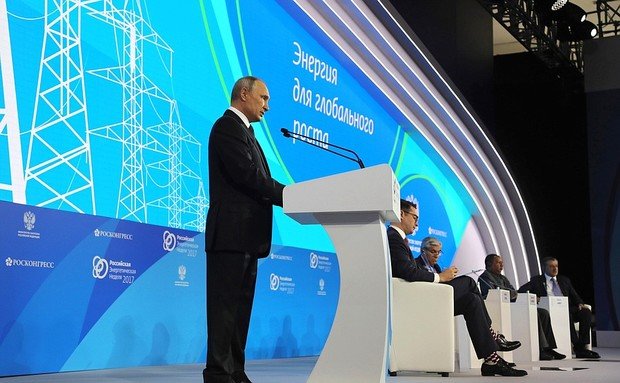Russia’s first emissions regulatory legislation in the works
The Russian government may adopt a law on regulating greenhouse gas emissions this summer. Although the legislation is likely to face strong opposition from energy industry players and some state bodies, it meets President Putin's goal of modernising Russia's outdated energy infrastructure.
The Kremlin is considering climate legislation that could give the world's fifth largest emitter a framework for regulating carbon emissions for the first time, says Climate Home News. The draft bill prepared by the Ministry of Economic Development is now under consultation with other governmental bodies. It entails a list of regulatory mechanisms including a cap and trade system of emissions permits and tax breaks for companies reducing or capturing their emissions. Proceeds from charges on exceeding the targets are supposed to go into a fund to support carbon-cutting projects.
Although the legislative framework is supposed to be finalised in June, Russian environmentalists are divided over its chances of passing into law, as only the Ministry of Economic Development and the Ministry of Natural Resources and Environment are supporting the current version of the text. The Ministry of Energy backed by the local fossil fuel industry opposes the legislation, said Vladimir Chuprov from Greenpeace Russia, adding that ''they are very scared that this law will damage the fossil fuel sector in Russia''. The Russian Union of Industrialists and Entrepreneurs (RUIE) also won't support the legislation ''in its present form'', according to an anonymous source in the organisation. In December, the RUIE presented an alternative, weaker piece of legislation, which excluded quotas, emissions trading and charges for exceeding emissions targets.

As for environmental NGOs, they are welcoming the move. According to Chuprov, the law, if passed, would set a ''new legal norm for Russian legislative history'', providing ''CO2 and other greenhouse gases with legal status.'' He thinks that the legislation has an ''80-90% chance'' of passing this summer.
The current version of the law will be weakened, as ''big business and oligarchs will fight against it'', considers Aleksey Kokorin, director of the climate and energy programme at WWF Russia. He believes that the draft outlining penalties for CO2 emissions is ''absolutely unfeasible''. ''They are smoothly pushing the goal of the ratification under the carpet,'' he adds.
However, the legislation meets President Putin's targets to modernise Russia for an era of greener international markets. Up to 70% of Russia's energy infrastructure is outdated, reads a 2018 state report. The social and economic damage from potential accidents can reach 600-700 billion rubles ($9,35-10,9 billion) per year. The framework law on carbon markets and greenhouse gas emissions is an effective way to ''motivate oligarchs to invest more into low-carbon technology,'' believes Chuprov. ''Politicians understand that any accident like Chernobyl has a political impact,'' he says. ''This is why Putin is trying to convince industry to invest more into the modernisation of Russia.''